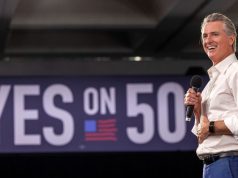
The University of Michigan’s consumer sentiment index fell to 50.3 in November, marking a nearly three-and-a-half-year low. The index is considered the benchmark for Americans’ confidence in economic conditions, and this drop — a 29.9% fall from last November — could signal that people are wary of spending their money.
What did the commentators say?
With the “federal government shutdown dragging on for over a month, consumers are now expressing worries about potential negative consequences for the economy,” Joanne Hsu, the director of surveys of consumers at the University of Michigan, said in a statement. This did not appear unique to any one demographic, as the “decline in sentiment was widespread throughout the population, seen across age, income, and political affiliation.”
The consumer sentiment data “confirmed what economists describe as a K-shaped economy, where the higher-income households are doing well and lower-income consumers are struggling,” said Reuters. There are concerns about the “labor market,” as both the University of Michigan and the New York Federal Reserve showed that “respondents expected the jobless rate to increase in the coming year and anticipated a tough time finding work if they were to become unemployed.” The Federal Reserve’s probability that unemployment will be higher in a year rose 1.4 points to 42.5%, the third monthly increase in a row.
But just because consumer sentiment is down doesn’t necessarily mean the economy is in a slump, experts say. Deteriorating sentiment “would suggest weak consumer spending, the economy’s main engine, but the correlation between the two is weak,” said Reuters. And most spending that is occurring is “being driven by higher-income households, as lower-income households are bearing most of the brunt of a sluggish labor market and higher prices from tariffs.”
Some people in these brackets are feeling unsure, though, according to the data. The “higher-income households are also less optimistic than they were at the start of the year,” said The Wall Street Journal. The lone exception seemed to be among people with large stock portfolios, who “posted a notable 11% increase in sentiment, supported by continued strength in stock markets,” Hsu said.
What next?
While the U.S. Senate has passed a controversial bill to end the government shutdown, the bill has yet to be rubber-stamped by the House. Amid the shutdown crisis and plummeting confidence, some analysts still feel it’s too early to ring the warning bells. While “sentiment does matter, over the past few years, we’ve seen consumers spend irrespective of how they’re feeling about things,” Mark Mathews, chief economist of the National Retail Federation, said to Barron’s. Consumers are “sentimentally weak but fundamentally sound.”
Most people’s balance sheets “are in a good place” for now, and “disposable income and wages have grown at a steady pace, giving households confidence to keep spending,” Mathews said to Barron’s. A “record-breaking bull run and soaring housing prices have also contributed to the resilience in spending, especially for upper-income consumers.” How middle-income consumers will be affected ultimately remains an open-ended question.
Sentiment dropped this month to a near-record low





